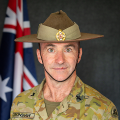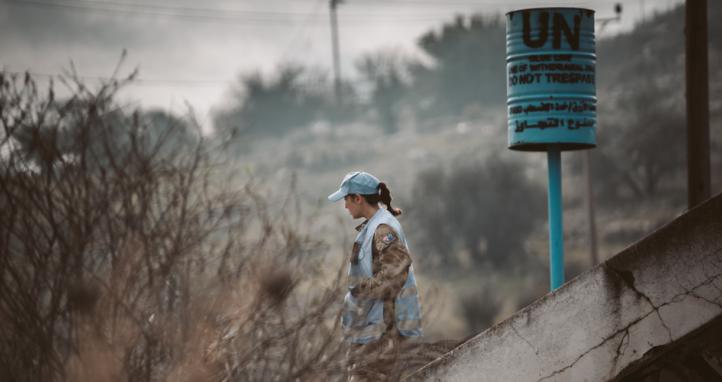Gender, Peace, and Security (GPS) is a human rights agenda stemming from the United Nations (UNSCR 1325) that Australia is seeking to champion.
The problem is that women and children are disproportionately affected by conflict – including sexual and gender-based violence – and peacemaking agreements have a better impact when women are around the table.
A gender perspective helps military members with situational awareness of the human terrain where we operate. This applies, for example, in disaster response (where women and children are 14 times more likely to die); stabilisation operations (where women’s networks are key for information); or working with Pacific neighbours (where family and domestic violence affects up to 80% of women).
A gendered element of human terrain is also unfortunately relevant when women and children are used as combatants, suicide bombers, human shields, or victims of sexual violence. In Australia it is relevant for policy, recruiting, administration, and training design to consider whether women and men will be affected differently.
A key training resource accessible to Defence members is the 2-hour Adele eLearning 'ADF Gender, Peace and Security Awareness Course'. The course helps with:
- Understanding the importance of GPS.
- Outlining the origins of GPS in UN mandates.
- Implications for gender-based violence and human trafficking.
- How GPS is supported and the priorities of GPS in the ADF.
- Distinguishing the role of Gender Focal Points and Gender Advisors.
- Discussing strategic relevance for Australia, referencing ADF’s Gender, Peace and Security doctrine, Defence Gender, Peace and Security Mandate and Australian National Action Plan on Women, Peace and Security 2021–2031.
- How all Defence members can contribute meaningfully.
GPS is a helpful perspective for me as a chaplain, both in supporting our people and in key religious leader and faith communities’ engagement. But GPS is important for any members serving on operations especially commanders and those advising commanders.
ADF Gender, Peace and Security Awareness Course is the best introductory place to start to understand the issues. The 3-day Gender Focal Point training and integrated Army/Navy/Air Force networks are a valuable next step. The online course and lessons in Gender Focal Point (GFP) training with Gender Advisors have begun to teach me how a gender perspective helps get a local population to peace and stability quicker and ensure that peace lasts longer and thus get our troops home faster.










